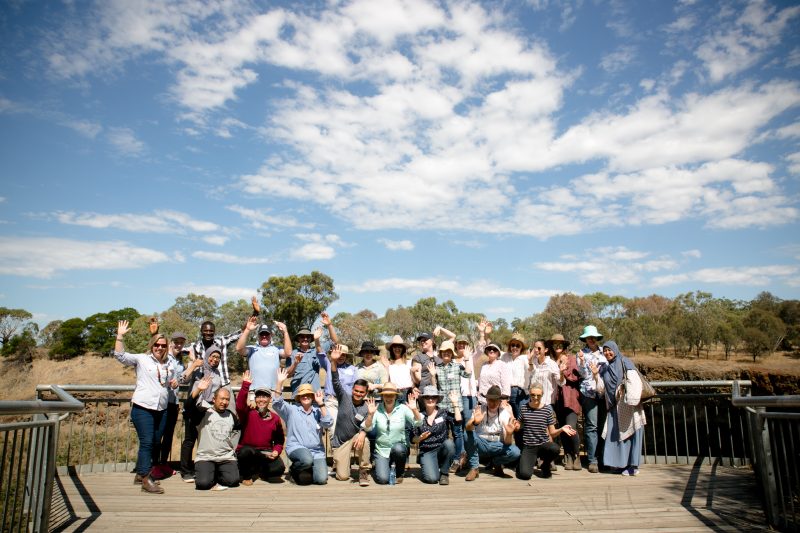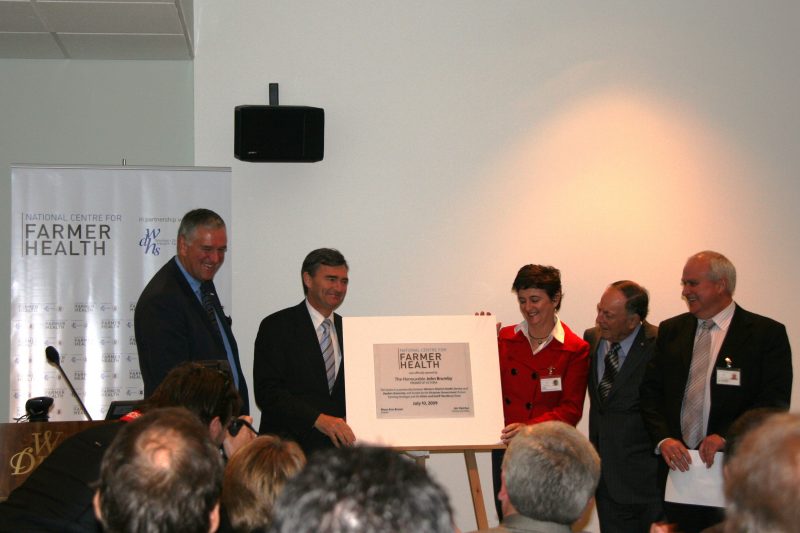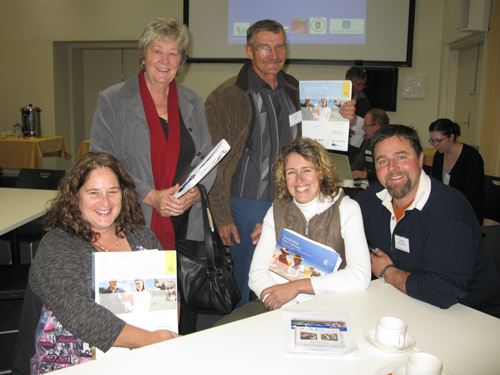It has been 13 years since the National Centre for Farmer Health (NCFH) first opened its doors in 2008. Based in the agricultural hub of Hamilton, Victoria, the NCFH brought together two organisations focussed on service to rural and regional communities –Western District Health Service and Deakin University, with funding from the Victorian Government and the Helen and Geoff Handbury Trust.
Farm women and men have long been key contributors to our rural and regional communities –their land and livestock producing the food and fibre that sustains and clothes us. Surprisingly, the number of farmers supporting this vision has remained surprisingly few with around 335,000 people directly employed in agriculture, forestry or fishing representing less than 3% of Australia’s workforce.[i] When the NCFH opened we were well into what became known as the millennium drought, with all of regional Victoria and parts of the nation declared in Exceptional Circumstances[ii].
Apart from challenging climatic conditions, agriculture, forestry and fishing had the unenviable record of a high risk workforce with high numbers of workplace deaths, including bystanders and children[iii]. My own personal experience of both working on farm and in rural health had highlighted to me the disparity of rural people (farming and agricultural workers in particular) to have voice in relation to their health, wellbeing and safety. It also became abundantly clear that to make any difference to farmer health, wellbeing and safety we could not rely solely on health services, and health professionals. To make a difference required a multipronged, cross sectoral and policy driven approach.
Over the 13 years the NCFH has helped and worked with many individual farm men, women and agricultural workers. We have provided thousands of health, wellbeing and safety assessments, detected early cancers, cardiac arrhythmias, mental health problems, respiratory illness, kidney disease and diabetes to name a few. We have undertaken significant research on cardiovascular disease, wellbeing, mental health, suicide, hearing loss, obesity and pesticides in farming communities and supported higher degree by research students. We have published widely[iv] and worked to translate these findings into new and better ways of working with farming communities. For 13 consecutive years we have taught Australia’s only Graduate Certificate in Agricultural Health and Medicine providing well over 200 health professionals with new skills and knowledge to assist with working in agricultural communities[v]. Our partnerships have been extensive collaborating across sectors of industry and agribusiness and across the nation. We have contributed to policy by participating in numerous reviews, parliamentary inquiries, quad bike standards, advertising standards and Royal Commissions.
Have we made a difference?
I believe so. There are many individual stories outlining the difference NCFH has made to individual and families lives. Stories telling of farm families getting off farm, making healthier food choices, increasing physical activity, improving safety, following up with medical appointments, changing pesticide use, utilising PPE, purchasing safer equipment and reducing their stress.[vi] Past students report improvements in their engagement with farmers and the insights and deeper understanding of health, wellbeing and safety issues that affect farmers. Pleasingly in 2020, a 39% decrease in fatality rates in agriculture, forestry and fishing since the peak in 2007 was reported by Safework.[vii] However, there is still much to do.
Whilst droughts, bushfire and floods will continue, the COVID-19 pandemic has further reminded us of the importance and vulnerability of our food supplies as never before has the world relied on so few to produce food and fibre for so many. Addressing and adapting to the impacts of environmental change with sustainable agricultural practices and food systems will require new and improved ways of doing things. Good health, wellbeing and safety of farmers and their families are fundamental to having successful and sustainable farm businesses and to build resilience to address the challenges of climatic, environmental and global change.
[i] Australian Bureau of Statistics (2011). Labour Force Survey. Canberra, ABS.
[ii] Department of Agriculture Fisheries and Forestry. (2007). The Year in Review 2006-2007. Retrieved December 28, 2010, from http://www.daff.gov.au/agriculture-food/drought/ec/nrac/nrac_2006-07_annual_report/the_year_in_review
[iii] Safe Work Australia. (2012). Work-related traumatic injury fatalities, Australia 2010-2011. Canberra: Safe
Work Australia.
[iv] https://farmerhealth.org.au/category/publications
[v] https://farmerhealth.org.au/education
[vi] https://farmerhealth.org.au/sustainable-farm-families-3/1618-2
[vii] Safe Work Australia (2020). Work-related Traumatic Injury Fatalities, Australia 2019, Safe Work Australia
|
|





